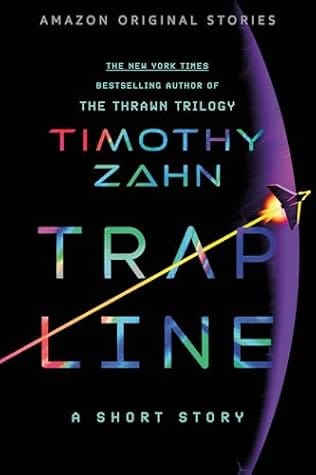The Long View 2002-02-02: Scary Babies
One of John's favorite themes was how slowly intellectual history moved in the twentieth century. In Spengler's Future, he said this:
Even when literature and art leave a conspicuous mark, however, modernity everywhere is fundamentally a time when ever more brilliant people seem to produce less and less of substance. As the period progresses, its art grows more and more-self-conscious until it disappears into technique. It is the time of Wagner rather than Bach in the West, of Legalism rather than the Mandate of Heaven in China. It is also the great age of reactionaries of all stripes, of traditionalists rather than tradition. Many modern political systems which are supposed to embody ancient principles are in fact faked antiques.
One of the remarkable aspects of modern times, considering the amount of energy and creativity expended during the period, is how little of its vast cultural output survives. Science survives since it takes up relatively little space (for better or worse: the facts of one civilization often don't stand up to examination by a later one). But the plastic and pictorial arts, the prose that critics come to blows over and the poetry that briefly seemed to change the world, all this is often known to later ages only through secondary sources. The originals may be destroyed or suppressed in the terrible final stages of the modern era. More often, they are simply lost or neglected as taste changes. As a rule, the more early-modern a thing is, the greater its hope of longevity. Works like those of Dickens survived (with occasional slumps and survivals), while almost none of the modernist Western canon was equipped to outlive the critical apparatus which called it into being. This is the era of experiments. In the nature of the case, they usually fail.
The battle lines over contraception, abortion, and all manner of reproductive technology haven't really changed much in 50 years. John's post still seems pretty topical after 12 years, which tells me the supposed advances of technology haven't done much for the arguments here. I don't think the problem is technology hasn't advanced much. I think the problem is our understanding hasn't advanced much.
Here, John also hits on one of the biggest issues with all manner of reproductive technology: it costs too much to really affect the raising of children very much. There are thorny issues to deal with in law and moral philosophy, but the majority of children will continue to be made the old fashioned way for reasons of cost:
Scary Babies
There was a picture of one of these on the cover of The Weekly Standard of February 4, 2002. As you might expect, the theme of the issue was biotechnology and its implications for the suddenly problematical human condition. The prospect of reproductive human cloning is only the beginning of evils, it would seem. I have some scattered observations about the two pieces in the issue on the subject.
"Kass Warfare," by Andrew Ferguson, was about the first public session of the President's Council on Bioethics, which is headed by the bioethicist Leon Kass. The rest of the council consists of jurists, philosophers and a gaggle of scientists. The session stared with a discussion of Nathaniel Hawthorne's 1846 short story, "The Birthmark." That's the one about the scientist who tries to cure his otherwise perfect wife's single tiny blemish and kills her in the process.
The liberal-arts types on the council reached for an interpretation of this story as an allegory of the principle that the attempt to perfect humanity destroys humanity. The math-science geeks were offended by the fact that Hawthorne plainly did not know what scientists did or why they did it. Actually, the best interpretation of the story may be rather technical. Writing in the heyday of New England Transcendentalism, Hawthorne may have simply been trying to illustrate the Kantian notion that absolutes are noumenal rather than phenomenal. That is, we never experience perfection or any pure condition. Such ideals should guide our actions, but we will never see them realized.
The article emphasized the insufficiency of the Yuck Factor, meaning the visceral reaction that people usually have to ideas like cloning when they are first proposed. The Yuck Factor is not a historical constant, Ferguson notes. The laws against miscegenation were backed largely by an inarticulate distaste for the idea of congress between the races. The laws disappeared when the distaste did. The Council on Bioethics is supposed to map out principled arguments about what we should and should not do that will stand scrutiny even when emotions change.
I would add that biotechnology often brings something else into play, what might be called the Pet Shop Factor. This refers to the Monty Python sketch in which John Cleese goes to a pet shop to buy a fish, but finds that the shop has only dogs. The shop owner offers to turn a puppy into a fish by vivisection. Cleese agrees, but only on condition that he can watch. It is possible to be greedy of wonders. Quite aside from whether it is a good idea to tinker with fundamental human biology, there is still the raw curiosity about whether it is really possible.
...

Comments ()